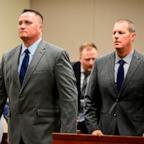Summer Travel '06, the Sardine Chronicles
April 11, 2006 — -- Breathing a collective sigh of relief has long been an annual springtime tradition for America's airline leaders.
After surviving the lean cash flow months of January through April -- with a little added help from the number of people flying over spring break -- even the worst-managed airlines have always looked to their summer sales as the potential savior of their annual bottom line.
After all, America goes on vacation in the summer -- roughly from mid-May through mid-September -- and with the rising demand that starts in mid-May for airline seats to just about everywhere, even the management team of Doofus International Airways is able to make a buck by simply ending the spring specials and other promotional fares that packed their planes during the down months, and letting the natural increase in passengers at normal prices pay the bills for much of the year.
Unfortunately, there are no "normal prices" anymore, and finding airline profits in a sea of red ink this year is going to require more than just an end to the specials. Instead, the summer flying season of 2006 will be marked by noticeably higher prices for fewer flights, and most of those will be packed to the gills.
Even though what's about to happen this summer will seem painful -- higher prices and overcrowding -- it's the beginning of a very necessary adjustment, without which a progressive collapse of more major carriers would be just a matter of time. The story of how we got to this point is something every airline consumer needs to hear, because it's a cautionary tale best summarized in the old adage, "If it seems too good to be true, it probably is."
Basically, for the last three decades, we've enjoyed lower and lower prices without realizing that our airline industry has been hooked on the self-destructive habit of selling its product -- the airline seat to somewhere -- for significantly less than the cost of producing it.
That below-cost addiction has already resulted in the loss of many tens of billions of dollars of airline capital and catapulted such airlines as United, Delta, US Airways, Northwest and others into Chapter Eleven. Worse, even after all the financial wreckage, the propensity for airline leaders to continue below-cost pricing has been unabated, because they still believe they can finagle their way to profitability using "yield management" to entice middle America with giveaway prices while mugging the business traveler at much higher rates and somehow averaging the two together to produce a profit.




